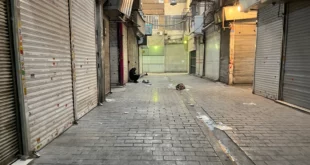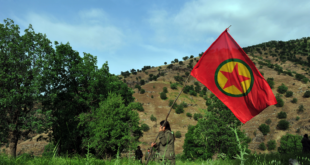 BUCHAREST (Reuters) – President George W. Bush set the stage for a clash at his final NATO summit on Wednesday by pressing reluctant west European allies to set former Soviet republics Georgia and Ukraine on a path to membership.
BUCHAREST (Reuters) – President George W. Bush set the stage for a clash at his final NATO summit on Wednesday by pressing reluctant west European allies to set former Soviet republics Georgia and Ukraine on a path to membership.
He also urged his allies to follow the example of France, Poland and host nation Romania in providing extra troops for NATO’s battle against Islamist insurgents in Afghanistan.
“We expect our NATO allies to shoulder the burden necessary to succeed … It’s worth it,” Bush said after talks with Romanian President Traian Basescu. He gave no target number.
“If we do not defeat the terrorists in Afghanistan, we will face them on our soil,” Bush said earlier in a speech in Bucharest before leaders of the 26-nation defense alliance were to open a three-day summit in the Romanian capital.
He said the West should reward democratic revolutions in Ukraine and Georgia by giving both countries the prospect of joining NATO, although Russia has opposed this.
“My country’s position is clear — NATO should welcome Georgia and Ukraine into the Membership Action Plan,” he said, referring to a program which is a gateway to membership.
France and Germany, backed by several smaller countries, have said Ukraine and Georgia do not meet NATO’s criteria and the decision would be an unnecessary provocation to Moscow just before President-elect Dmitry Medvedev takes office.
At stake is whether NATO pushes its European borders right up to the frontiers of Russia, with the exception of Belarus, or leaves a strategic buffer zone as the Kremlin wishes.
NATO Secretary-General Jaap de Hoop Scheffer left the scope, timing and nature of planned expansion vague in a speech to youth leaders from alliance countries.
“I expect the summit will open NATO’s doors to several new members from southeast Europe,” he said, adding the alliance would also strengthen ties with other states in the Balkans and the Euro-Atlantic area, including Ukraine and Georgia.
Bush sought to soothe Russian anger over what Moscow sees as NATO’s attempt to encroach on its sphere of influence, saying the Cold War was over and Russia was not the West’s enemy.
Looking ahead to a weekend summit with Russian President Vladimir Putin, Bush said there could be an unprecedented level of strategic cooperation on missile defense and arms control.
To a journalist who said that farewell meeting was headed for a “diplomatic train wreck”, the president said: “You call it a diplomatic train wreck … and I call it an opportunity.”
Foreign Minister Sergei Lavrov told Russia’s lower house of parliament Moscow would respond “pragmatically” to any further NATO expansion by strengthening its defenses and economic might, but gave no details.
TOUGH DISCUSSIONS AHEAD
NATO summits are usually carefully choreographed to showcase pre-cooked agreements but the main enlargement decisions this time are to be agreed at an opening dinner, when Bush meets the French, German and other leaders.
“Almost all of the files are not locked away in the filing cabinet as they have been in past summits,” a NATO diplomat said.
NATO decisions require unanimity, so Washington will probably have to settle for a program of closer cooperation with Ukraine and Georgia and at most a commitment to review the issue at next year’s 60th anniversary summit.
German Foreign Minister Frank-Walter Steinmeier was quoted by a German newspaper as saying NATO should not strain ties with Moscow beyond “the limit of the manageable” by supporting their request for a Membership Action Plan (MAP).
A senior German diplomat, Wolfgang Ischinger, also rejected accusations by Georgian President Mikhail Saakashvili that Berlin’s attitude was tantamount to appeasement of the Kremlin.
The real issue is how hard the United States will try to push for France and Germany to make a commitment to give Ukraine and Georgia a MAP in 2009, a senior NATO diplomat said.
Another uncertain decision facing the leaders was over Macedonia’s candidacy for NATO membership. Greece has threatened to veto Skopje’s entry over an unresolved dispute about the former Yugoslav republic’s name.
Bush made clear Washington wanted Macedonia, along with Croatia and Albania, to be invited to join this week. But Greek Foreign Minister Dora Bakoyanni said in Athens there was no time for a last-minute compromise. “We have said that no solution means no invitation,” she told reporters.
Diplomats said if Athens did not yield, leaders might try to issue a conditional invitation to Skopje, to be ratified once the name dispute was settled.
Some fear Macedonia’s exclusion would plunge it into a new political crisis, with repercussions for a region already on tenterhooks over Kosovo’s February 17 secession from Serbia.
 Eurasia Press & News
Eurasia Press & News



